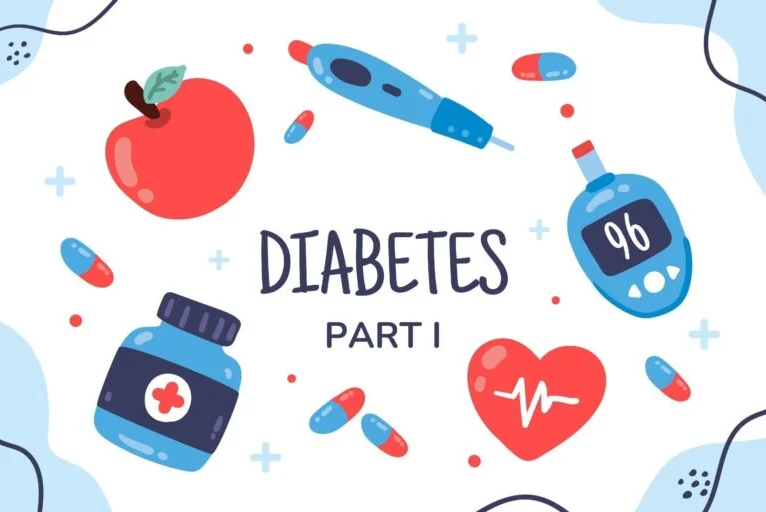Diabetes | Everything you should Know | Part I
This topic mainly will be including-
- Basics of Diabetes ( 1st part)
- Types of Diabetes ( 1st part)
- Symptoms and signs of diabetes
- Complications of Diabetes
- Diagnosis and Prognosis of Diabetes
- Treatment for Diabetes
- Lifestyles modification
- Myths of Diabetes.
BASICS OF DIABETES –
What is diabetes?
Diabetes is a form of disease that involves problems with the hormone insulin. Normally, the pancreas releases insulin to help your body store and use the sugar and fat from the food you eat. Diabetes occurs when one of the following occurs:
- When the pancreas does not produce any insulin
- When the pancreas produces very little insulin
- When the body does not respond appropriately to secreted insulin, a condition called “insulin resistance”.



HOW DOES INSULIN WORK?
- Our body is made up of millions of cells. To make energy, these cells need food in a very simple form. When we eat or drink, much of our food is broken down into a simple sugar called “glucose.” Then, glucose is transported through the bloodstream to the cells of our body where it can be used to provide some of the energy our body needs for daily activities.
- The amount of glucose in our bloodstream is tightly regulated by the hormone insulin. Insulin is always being released in small amounts by the pancreas. When the amount of glucose in your blood rises to a certain level, the pancreas will release more insulin to push more glucose into the cells. This causes the glucose levels in our blood (blood glucose levels) to drop.
- To keep our blood glucose levels from getting too low (hypoglycemia or low blood sugar), our body signals to eat and releases some glucose from storage kept in the liver.
- People with diabetes either don’t make insulin or their body’s cells are resistant to insulin, leading to high levels of sugar circulating in the blood, called simply high blood sugar.
TYPES OF DIABETES
NEXT ARTICLE TO BE CONTINUED-
The content of this publication has been developed by a third party content provider. The content herein has been developed by clinicians and/or medical writers and/or experts. The information contained herein is for educational purpose only and we request you to please consult a Registered Medical Practioner or Doctor before deciding the appropriate diagnosis and treatment.”
We are the Best Pathology Lab on Sinhgad Road i.e. SAHAYOG PATHOLOGY LABORATORY,
Diagnostic Lab no F 17 DC1 Nanded City, Sinhagad Road Pune
Fully equipped laboratory in Nanded city with
Collection Centres at Warje, Dhayri, Ambegaon, Kirkitwadi, Manik Baug, Shivaji Nagar, Tathawade, Wakad.
For more info visit us at https://sahayogdiagnostics.in/



